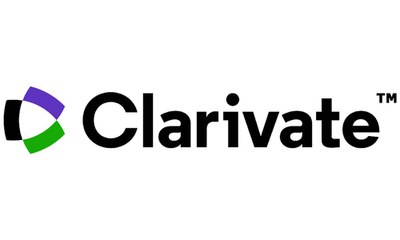Five Jülich scientists among the "Highly Cited Researchers 2024" | Nature Index: Helmholtz among the top 10 emerging AI institutions
21. November 2024
Five scientists from Forschungszentrum Jülich have been included in the list of "Highly Cited Researchers 2024" by the renowned Web of Science Group, which belongs to Clarivate Analytics. This distinction honours their significant research achievements, which are cited with above-average frequency in scientific publications worldwide. It is considered one of the most important indicators of scientific excellence. This year, the list includes 6,636 scientists from over 1,200 institutions in 59 countries and regions worldwide.
The honoured scientists:
- Professor Simon Eickhoff from the Institute for Brain and Behaviour: As a leading expert at the interface between neuroanatomy, data science and brain medicine, he uses artificial intelligence and high-performance computing to explore the data-intensive world of neuroscience.
- Professor Wulf Amelung from the Institute of Agrosphere: The scientist is concerned with questions of nutrient cycles in soils, soil degradation and the behaviour of pollutants in soils.
- Professor Christoph Brabec from the Helmholtz Institute Erlangen-Nürnberg for Renewable Energy, part of the Jülich Institute of Energy and Technologies: The materials researcher develops manufacturing processes for organic electronics, including innovative solar modules and rollable displays.
- Professor Michael Saliba from the Institute for Photovoltaics: His research focuses on perovskites – a class of semiconductors that Saliba has played a major role in developing. They are used in highly efficient solar cells and are considered promising for sustainable energy production.
- Professor Wolfgang Zeier from the Helmholtz Institute Münster, part of the Jülich Institute of Energy Materials and Devices: His research focuses on the development and optimisation of materials for solid-state batteries, which are considered promising candidates for future battery systems in mobile and stationary applications.
The "Highly Cited Researchers" list honours scientists whose publications have been among the most cited in their field over the past decade. Highly cited publications are those that are among the most cited one per cent in the year of publication. Researchers who are involved in multiple highly cited papers demonstrate outstanding influence in their field or multiple fields and qualify for this distinction.
The selection is based on a combination of citation data from the Web of Science database and qualitative analyses by experts from the Institute for Scientific Information (ISI). In addition to citation strength, the researchers' recognition in the community is also taken into account. This rigorous process ensures that not only quantitative but also qualitative contributions to science are honoured.
In the current statistics, Germany remains in fourth place in the global ranking with a total of 332 "Highly Cited Researchers" – behind the USA (2,507), China (1,405) and the United Kingdom (563).
Nature Index: Helmholtz among the top 10 emerging AI institutions
Nature Index ranks the Helmholtz Association, of which Forschungszentrum Jülich is also a member, among the world's leading emerging institutions in the field of artificial intelligence (AI). In addition to US and Chinese institutions, Helmholtz is one of the few European organisations among the top 10.
The report particularly highlights the Helmholtz AI platform, in which the Jülich Supercomputing Centre and the Jülich Institute for the Structural and Functional Organisation of the Brain, among others, are involved. Through Helmholtz AI, the association offers scientists from all research areas comprehensive advice and training, easier access to computing capacity and good availability of high-quality research data, thus creating ideal working conditions for science. The Nature Report confirms the added value of the activities to date and underscores the global significance of Helmholtz in the field of artificial intelligence.
The Nature Index is a database that assesses the scientific performance of institutions and countries based on their publications in selected, renowned scientific journals. It provides an overview of the global research landscape and enables the comparison of research results across different disciplines. The database is compiled by Nature Research Intelligence, a division of Springer Nature.
Contact Persons
- Institute of Neurosciences and Medicine (INM)
- Brain and Behaviour (INM-7)
- Institute of Bio- and Geosciences (IBG)
- Agrosphere (IBG-3)
- Institute of Energy Technologies (IET)
- Helmholtz Institute Erlangen-Nürnberg for Renewable Energy (IET-2 /HI ERN)
- Institute of Energy Materials and Devices (IMD)
- Photovoltaics (IMD-3)
- Institute of Energy Materials and Devices (IMD)
- Helmholtz Institute Münster: Ionics in Energy Storage (IMD-4 / HI MS)







